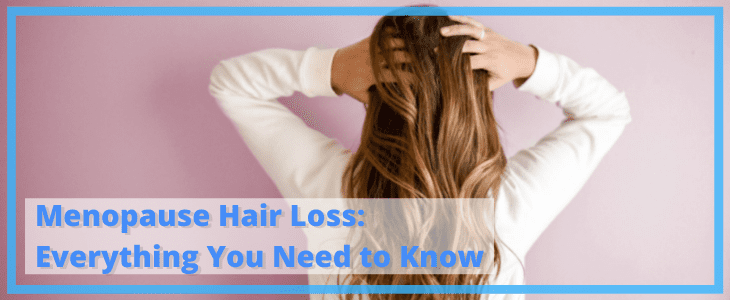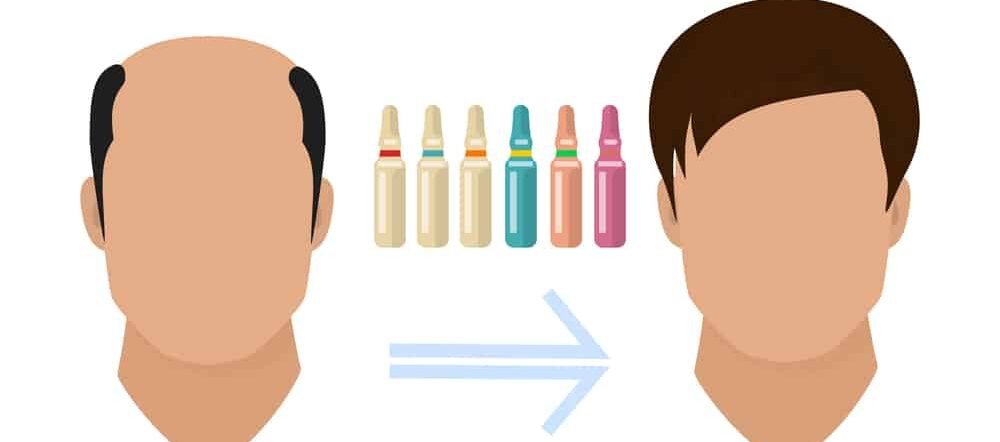Menopause and hair loss, two natural and common processes that may be correlated with a number of other symptoms and conditions in the body.
Some of the common conditions that bring hair loss in females are pregnancy, thyroid disorders, anemia, autoimmune diseases, polycystic ovary syndrome (PCOS), and skin conditions such as psoriasis and seborrheic dermatitis. Hormonal imbalance is also one of the most common conditions where menopause can cause hair loss.
Menopause is a natural biological process that all women experience at some point in their lives. During this time, the body goes through numerous physical changes as it adjusts to fluctuating hormone levels. Many women have unpleasant symptoms during menopause and hair loss is one of them.
In this article, we will discuss menopause and hair loss and everything you need to know about them.
Does menopause cause hair loss?
The various symptoms of perimenopause and menopause affect each woman differently. Along with hot flashes, mood changes, and sleep problems, some women experience hair thinning.
Hair loss during menopause and perimenopause is more common than you think. Most women experience a gradual hair thinning on the front, sides, and top of their head rather than the more visible receding hairline and bald spots commonly seen in men. Falling of hair while brushing or showering in clumps is also common.
It is estimated that 70% of women experience hair loss after 70, an age where menopause has definitely started. This condition can also have a psychological impact on women.
The majority of us can relate to the lack of confidence associated with a ‘bad hair day’. And many women find that menopause-associated hair loss damages their confidence.
Both men and women are affected by hair loss since it’s a common problem, but the impact may arguably be even more devastating in women, leading to self-exclusion and severe depression.
Why your hair is thinning during menopause?
The hair experiences thinning and extreme loss during menopause because of hormones. Lack of estrogen could lead to a lackluster mane. Estrogen and progesterone keep the hair in the growing phase, making it grow faster and stay on the head longer. When estrogen and progesterone levels decline, hair growth slows and hair loss becomes more pronounced.
Also, the body produces more androgen during perimenopause and menopause in response to the loss of estrogen and progesterone. Androgens shrink hair follicles, which causes hair loss on the head. Interestingly, androgens can also increase hair growth in other parts of the body such as the face.
Due to these hormonal imbalances and sudden drops in the levels of specific hormones, hair begins to grow slower and become thinner.
How long does the menopausal hair loss period last?
Menopause hair loss happens more slowly as compared to other conditions. It is a huge shift where you may experience a massive shed.
During menopause, it is a gradual decrease in either the ratio of hormones or the level of hormones in the body. The menopausal hair loss period may continue as long as the body can’t fully adjust to the hormonal fluctuations.
The duration of menopause doesn’t have a set time period, and the period and condition vary. It is a temporary condition and depends on how the individual body is working with menopause.
Can menopause and menopause-induced hair loss be treated?
Menopause symptoms can be improved by various treatments such as taking hormone-balancing medicines or other types of therapy. Always consult with your doctor as treatments may have risks and side effects.
Specifically, menopause-induced hair loss can be treated as an individual symptom through hair supplements and possible hair growth stimulants such as topical minoxidil for women.
In some menopause cases, hair loss may slow, but don’t stop permanently while some may experience that their hair starts to grow in places where it never grew before.
Is menopausal hair loss permanent?
No, menopausal hair loss is not a chronic condition, but the hair lost during menopause may be permanently gone. As menopause is a temporary period of one’s life, the hair loss process is temporary, but it is impossible to predict how long it will last.
Menopausal hair loss occurs in more than 40 percent of cases. It is often an unavoidable side effect of changes in hormone levels during menopause, and in many cases, menopausal hair loss can be permanent just like hair loss from male pattern baldness. There are various steps you can take to treat hair loss and hair thinning and improve the quality of your hair.
Will hair grow back after menopause?
Hair thinning due to menopause can be either permanent or temporary. It depends on how your body is adjusting to the hormonal imbalance and what steps you are taking to treat hair loss.
You can also go for hormone replacement therapy since hormones play a big role in hair loss. Perimenopausal or menopausal women are undergoing this therapy with bio-identical hormone pallets may notice an improvement in hair growth.
It is best to consult your doctor first, do the necessary testing, so you can get a proper medical evaluation for treating menopause symptoms and regrowing your hair.
How to stop hair loss during menopause?
Follow these tips to stop hair loss or keep your hair strong during menopause.
- Consult your doctor first.
- It’s important to keep your stress levels in check to prevent a hormonal imbalance. Exercising regularly and doing yoga and meditation can reduce stress.
- Eating a balanced diet is your best defense against hair loss if your hair loss happens because of vitamin deficiencies. Consider a diet that includes whole grain, fruits, vegetables, and monosaturated oils. Green tear, folic acid, and vitamin B6 supplements are also important.
- Consider a hair supplement specifically for menopause such as Nutrafol.
- Drink a lot of water to stay hydrated and avoid consuming too much sugar.
- Avoid using tools that heat your hair, like dryers, straighteners, extensions, hair dyes, etc. Keep the hair natural to maintain most of its health and strength.
How to reverse thinning hair after menopause?
Here are some ways that you can try to reverse hair thinning after menopause.
- Consult your doctor for a proper medical evaluation.
- Scalp massage may stimulate hair growth and cellular activity in hair follicles.
- Improve your diet and include protein, zinc, iron, Vitamin C, Biotin, and healthy fats.
- Avoid excessive styling
- Avoid putting excessive stress on your hair.
- Take hair supplements that your doctor recommends for your thinning hair.
- Use an anti-thinning shampoo.
- Consider natural remedies for thinning hair and avoid harsh chemicals.
There is usually a way to either treat, slow down or even reverse your thinning hair. Never lose hope, and don’t lose your confidence because menopause is simply a natural process that eventually ends, and while it is ongoing, there are things you can do to relieve it. Good luck.




